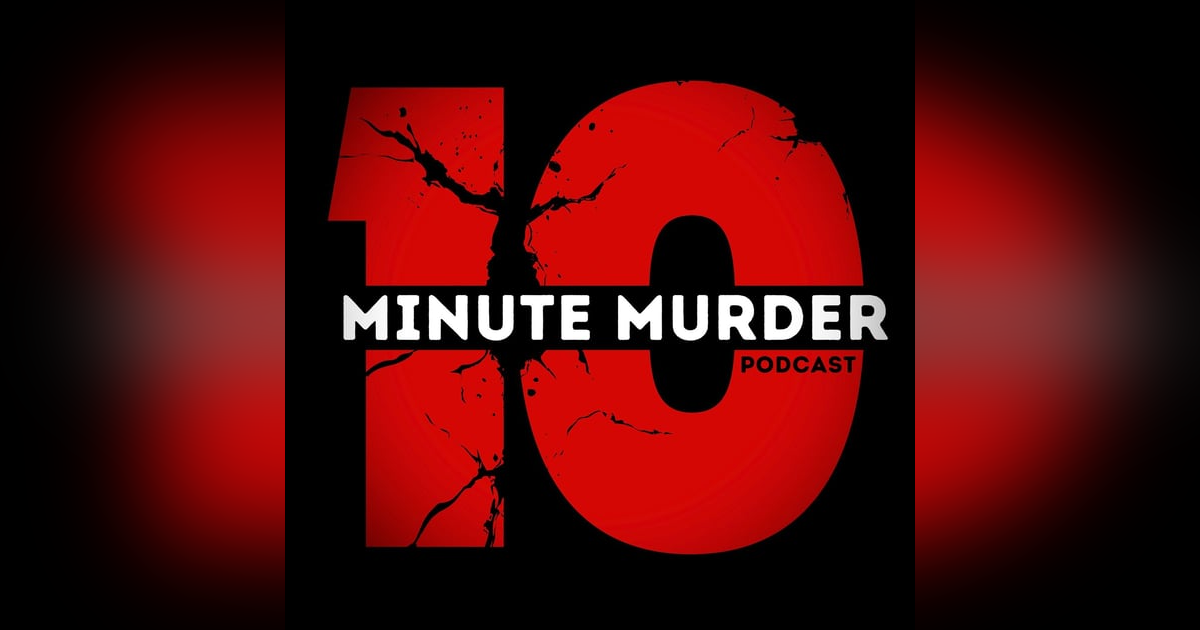The Complex Case of Cyntoia Brown

“He would explain to me that some people were born whores, and that I was one, and I was a slut and nobody’d want me but him,” a girl told the courts. These are words that are so difficult to hear in any testimony, let alone when we know that the girl who spoke them was only sixteen years old at the time she recalled them.
Cyntoia Denise Brown was born at Fort Campbell, Kentucky, on January 29th, 1988, and she was born into desperate circumstances. The identity of her biological father remains a mystery, even to Cyntoia, but in some ways we know all too much about her mother, Georgina Mitchell.
When Georgina was pregnant with Cyntoia, she drank. By her own accounts she drank about a fifth of a bottle of whiskey every day during her whole pregnancy. After Cyntoia was born, Georgina then escalated to crack cocaine.
“Bipolar, personality disorder, suicidal, manic depressive,” Georgina later listed some of the conditions that she had been diagnosed with. Any single one of those would have made things difficult enough when trying to raise her daughter as a single parent.
Perhaps realizing that she was taking on too much, Georgina then put Cyntoia up for adoption.
But in many ways the damage had already been done.
Ellenette Brown (adoptive mother) and Cyntoia
Although she would later grow into a fiercely intelligent woman, her mother’s drinking would deeply affect Cyntoia who’d been born with fetal alcohol spectrum disorder; a condition that alters the mental and cognitive development in children.
Cyntoia was adopted into what seemed to be a good home, but struggled anyway. She ended up dropping out of elementary school and getting into trouble with the juvenile court system. In 2001, she spent two years in the Department of Children’s Services for committing “crimes against a person, and crimes against property.”
During her time in DCS facilities, including one called Woodland Hills Youth Development Center in Nashville, Cyntoia escaped and went on the run several times. One of those times, one that came in 2004, would be Cytnoia’s last escape and she left to live on her own on the streets of Nashville.
Cyntoia first managed to get by by living with friends, some of which were allegedly already deep into drinking and drugs even though they were still children themselves, and then she met Garion McGlothen.
His street name was Cut-Throat and even though the twenty-four-year-old first won Cyntoia over by being kind and sweet, that was all about to change. When Cyntoia moved into a hotel room with Cut-Throat, his true nature finally emerged. The new couple now needed a way to support themselves and Cut-Throat believed that he had the solution.
Sixteen-year-old Cyntoia would have to start working the streets.
Cyntoia found herself going along with Cut-Throat’s plan and when and if she didn’t agree to, he would threaten, beat and on multiple occasions sexually assault her.
“The best thing I could do was just learn to be a good whore,” Cyntoia later testified.
On the summer night of August sixth, 2004, Cyntoia found herself out working the streets again when she was approached by a potential client.
Forty-three-year-old Johnny Michael Allen, a real estate agent, local youth pastor and Sunday school teacher, approached Cyntoia in his car. According to accounts, he then asked Cyntoia if she was hungry and “up for any action.”
Cyntoia said yes to both questions. She got into Johnny’s car and left the car park with him. They first ordered food before Johnny took her to his house where the two of them negotiated that Cyntoia would have sex with him in exchange for 150 dollars.
Friends and family say that Johnny would never have approached Cyntoia looking for an exchange of services. In fact, they later argued, it was more than likely that Johnny was just trying to help the struggling teenager.
The prosecution and other witnesses disagreed with this statement and several teenage girls would come forward to testify that Johnny would often hit on them in public.
Cyntoia herself also had a different version of events. She said that during her time at Johnny’s house, he continuously talked about his guns. He allegedly told her that he’d been a sharpshooter in the military and was an incredible shot. Cyntoia said that she’d been terrified and had wanted to leave but the visible gun cabinet in the corner of the room had made her stay put.
Although she claims that the two of them never actually had sex that evening, the two of them ended up in bed. Johnny was naked and after alleged accounts where he violently grabbed Cyntoia by the genitals, he turned around and began to reach for something under the bed.
Cyntoia claims that she’d thought that he’d been reaching for one of his guns and that she’d simply shot first in order to defend herself. Cut-Throat had given Cyntoia a gun to protect herself with when working and as Johnny had been reaching for something that Cyntoia couldn’t see, Cyntoia had spun around and shot him in the back of the head.
Then, allegedly terrified of showing up back home empty-handed, she stole 172 dollars from Johnny’s wallet and a couple of his firearms before jumping into Johnny’s truck and driving off. She abandoned the truck in a Walmart parking lot before hitchhiking her way back home to Cut-Throat.
This was the version of events that Cyntoia told the investigators and the courts, but as everyone would find out, things were rarely black and white with Cyntoia.
Still only a homeless, runaway child who’d been forced into prostitution by her older and abusive boyfriend, Cyntoia seemed to take killing Johnny in stride. She called up a neighbor the next day, asking for a lift to that same car park where she’d abandoned Johnny’s car the night before. “(I) shot somebody in the head last night and blew his brains out,” Detectives took down a witness statement from this neighbor, claiming that Cyntoia had then asked him to drive her to Johnny’s house. She also apparently said that she’d stolen “fifty thousand dollars and some guns,” from the man she’d killed.
The neighbor refused to take Cyntoia to Johnny’s house and once she found out that her neighbor had reported her to the police, she called him up to threaten him. “You better stop running your f*cking mouth about my business or I’ll get to you too,” she warned him.
But instead of killing her neighbor too, Cyntoia actually called 911 and confessed to killing Johnny.
She was arrested and charged with murder. There was no question of her guilt, but the system needed to figure out if Cyntoia would be tried as a minor or as an adult. She was still only sixteen years old, but her crime had been a big and a serious one. A juvenile court judge eventually ruled that Cyntoia’s case was too much of a risk to the community for her to be tried as a minor.
Cyntoia kept claiming self defense and that she’d believed that Johnny had been reaching for a gun.
The prosecution argued that there had been no firearm in Johnny’s bedroom and that judging by the position he’d been found in, he’d actually been sleeping at the time of the shooting. Cyntoia, they argued, hadn’t felt like she’d been in danger that night. She’d killed Johnny simply so that she could rob him.
The defense claimed that Johnny had been much more than what he’d seemed to be on the surface. They said that what he was was a forty-three-year-old predator and his prey had been the sixteen-year-old girl that he’d been intent on sexually assaulting that night. To prove this, they produced a witness who claimed that Johnny had brought her home one night, just like he had with Cyntoia. He then began kissing and fondling her, but when the girl had said that she didn’t want to have sex with him, Johnny had raped her.
The jury heard evidence both for and against Cyntoia’s claims of self-defense, but ultimately they ruled that Cyntoia’s motives hadn’t been pure. She was found guilty of first-degree murder and because she was being tried as an adult, her punishment would be much more severe than if she was being sentenced as a minor.
Cyntoia was sentenced to life in prison with the possibility of parole after fifty-one years, meaning that she would be at least sixty-seven by the time she saw the outside world again.
But Cyntoia got to work making the most out of her sentence. She first earned her GED and then a liberal arts degree and then a bachelors. Both of which she actually graduated with a 4.0 GPA.
It looked like Cyntoia was doing everything she could to turn her life around despite the over half a century she would have to wait to put any of her new degrees to good use.
And then in 2017, word spread about Cyntoia and what had happened to her. Rihanna, Kim Kardashian, Snoop Dog and many others made social media posts in support of Cyntoia after hearing about her story in a documentary. They helped put the public pressure on the system to grant Cyntoia her freedom.
Cyntoia found herself in a clemency hearing with many people testifying on her behalf and arguing for her release, including the prosecutor Preston Shipp who had helped put Cyntoia behind bars in the first place.
But she also had people arguing against her release, including Charles Robison, the lead detective on Johnny’s case. He told the board that he didn’t believe that there was any physical evidence to support Cyntoia’s claims of self-defense or even that she was being trafficked in the first place.
The board split into three. There were those that supported Cyntoia, those who wanted to keep her in prison for the rest of her term and those who wanted to reduce her sentence.
While the board continued to debate Cyntoia’s future, the Tennessee Supreme Court was wrestling with the same question. Was it right to lock up a sixteen-year-old and throw away the key?
Governor Bill Haslam didn’t think so and in his final month in office he commuted Cyntoia’s sentence to fifteen years, which she had already served, plus ten years of supervised parole. She was released from prison in the summer of 2019.









